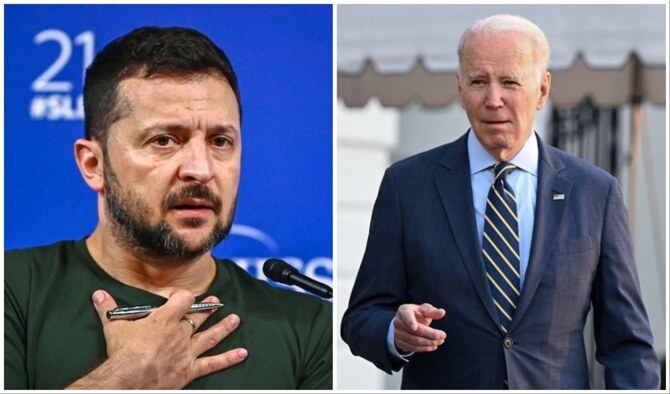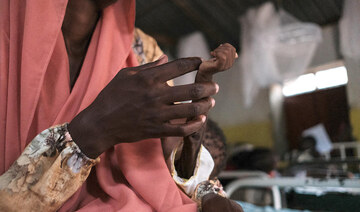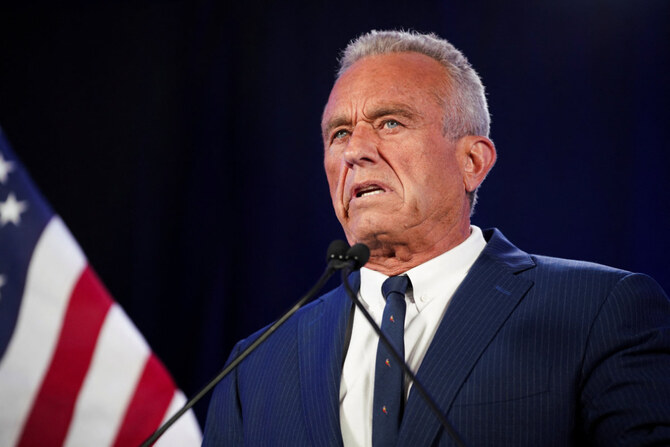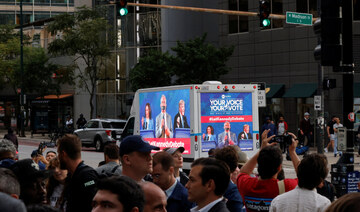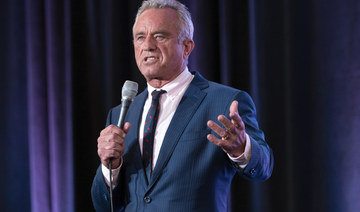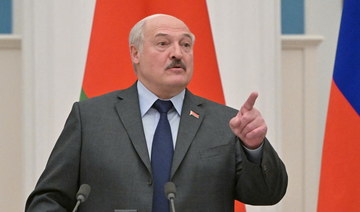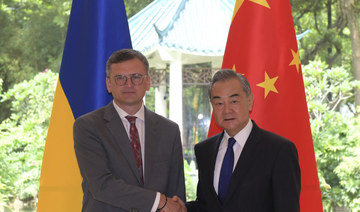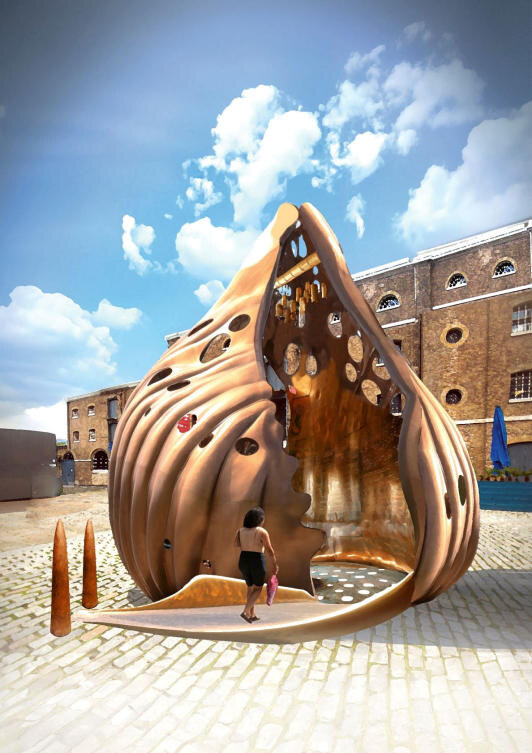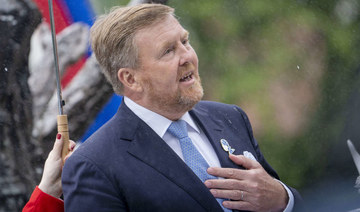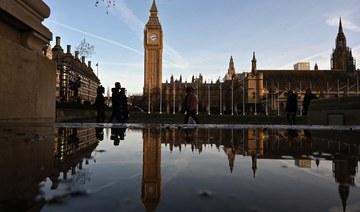PHOENIX, Arizona: Robert F. Kennedy said Friday he’s suspending his independent presidential bid and will seek to remove his name from the ballot in battleground states because he believes his presence in the race would help Democratic nominee Kamala Harris.
He said his supporters can continue to back him in the majority of states where they are unlikely to sway the outcome. Kennedy took steps to withdraw his candidacy in at least two states late this week, Arizona and Pennsylvania.
Kennedy said the move followed conversations with Donald Trump over the past few weeks.
Before the speech, his campaign had said in a Pennsylvania court filing Friday that he would be endorsing Trump for president. However, a spokesperson for Kennedy said the court filing had been made in error.
“Mr. Kennedy has not endorsed President Trump,” said spokesperson Stefanie Spear. “The filing was made by an attorney and not reviewed by the campaign.” She said the filing would be updated.
Kennedy’s independent campaign also requested that he be removed from the Pennsylvania ballot, though it was not immediately clear that he was officially dropping out of the race.
Kennedy had a speech planned in Arizona on Friday to discuss “the present historical moment and his path forward,” according to his campaign. Hours later, Trump will hold a rally in neighboring Glendale. Trump’s campaign has teased that he will be joined by “a special guest,” though neither campaign responded to messages about whether Kennedy would be that guest.
A late-stage endorsement in the presidential race could give the former president a modest boost from Kennedy’s supporters.
A year ago, some would have thought it inconceivable that a member of arguably the most storied family in Democratic politics would work with Trump to keep a Democrat — Vice President Kamala Harris — out of the White House. Even in recent months, Kennedy has accused Trump of betraying his followers, while Trump has criticized Kennedy as “the most radical left candidate in the race.”
The Pennsylvania filing came Friday in a case in which Kennedy was defending his paperwork to get on the ballot in the battleground state against a challenge by two Democratic activists.
The filing said that, “as a result of today’s endorsement of Donald Trump” he was requesting the dismissal of his campaign’s nomination papers so that he would not appear on Pennsylvania’s ballot.
Kennedy already has secured ballot access in several states, including battlegrounds like Michigan and Nevada. Some secretaries of state said it’s too late for him to remove himself even if he wants to do so.
Cheri Hardmon, a spokesperson for Michigan’s Department of State, said its law requires presidential electors be selected at the fall state convention, and that already happened, which means his name will remain on the state’s ballot.
And in Wisconsin, where Kennedy has filed for ballot access and is awaiting approval, there is “no mechanism for him to ‘take back’ the filing,” according to Wisconsin Elections Commission spokesperson Joel DeSpain.
The Kennedy and Trump campaigns have ramped up their compliments to each other and engaged in behind-the-scenes discussions in recent weeks, according to those familiar with the efforts. Both campaigns have spent months accusing Democrats of weaponizing the legal system for their own benefit. And both have hinted publicly that they could be open to joining forces, with the shared goal of limiting Harris’ chances.
Last month, during the Republican National Convention, Kennedy’s son posted and then quickly deleted a video showing a phone call between Kennedy and Trump, in which the former president appeared to try to talk Kennedy into siding with him.
Talks between the two camps continued, with close Trump allies quietly lobbying Kennedy to drop out of the race and support the Republican nominee, according to a person familiar with the efforts who spoke on condition of anonymity to discuss private conversations.
Trump told CNN on Tuesday that he would “love” an endorsement from Kennedy, whom he called a “brilliant guy.” He also said he would “certainly” be open to Kennedy playing a role in his administration if Kennedy drops out and endorses him.
Kennedy’s running mate, Nicole Shanahan, also openly suggested on a podcast this week that his campaign might “walk away right now and join forces with Donald Trump.” While she clarified that she is not personally in talks with Trump, she entertained the idea that Kennedy could join Trump’s administration as secretary of the Department of Health and Human Services.
“I think that Bobby in a role like that would be excellent,” Shanahan said. “I fully support it. I have high hopes.”
Earlier Friday, Shanahan posted on X that she isn’t a Kamala Democrat or a Trump Republican.
“I’m an INDEPENDENT American who is endorsing ideas, not a person or a party,” she wrote. “I will continue working to give a voice to the voiceless and bring power back to the people.”
At Kennedy’s Phoenix event, 38-year-old Casey Westerman, a Chandler, Arizona, resident who works in software sales, said she trusted Kennedy’s judgment and had planned to vote for him, but would support Trump if Kennedy said that was who he was endorsing.
“My decision would really be based on who he thinks is best suited to run this country,” said Westerman, who wore a “Kennedy 2024” trucker hat and voted for Trump in the last two presidential elections.
The scheduled remarks by Kennedy, a son of former Attorney General Robert F. Kennedy and a nephew of former President John F. Kennedy, come as his campaign’s momentum has slipped.
Kennedy Jr. first entered the 2024 presidential race as a Democrat but left the party last fall to run as an independent. He built an unusually strong base for a third-party bid, fueled in part by anti-establishment voters and vaccine skeptics who have followed his anti-vaccine work since the COVID-19 pandemic. But he has since faced strained campaign finances and mounting legal challenges, including a recent ruling from a New York judge that he should not appear on the ballot in the state because he listed a “sham” address on nominating petitions.
Many members of Kennedy’s extended family have been vocal that they don’t see eye to eye politically with Kennedy Jr., and some came out publicly to endorse Biden before he dropped out of the race.
Recent polls put his support in the mid-single digits. And it’s unclear if he’d get even that in a general election, since third-party candidates frequently don’t live up to their early poll numbers when voters actually cast their ballots.
There’s some evidence that Kennedy’s staying in the race would hurt Trump more than Harris. According to a July AP-NORC poll, Republicans were significantly more likely than Democrats to have a favorable view of Kennedy. And those with a positive impression of Kennedy were significantly more likely to also have a favorable view of Trump (52 percent) than Harris (37 percent).
In an interview with MSNBC at the Democratic National Convention in Chicago on Thursday, Harris communications director Michael Tyler said her campaign welcomes Kennedy voters should the independent candidate drop out.
For voters who see Trump as a threat, who are looking for a new way forward, or who want “government to get the hell out of the way of their own personal decisions, there’s a home for you in Kamala Harris’ campaign,” Tyler said.
For Trump, Friday will mark the end of a week’s worth of battleground state visits in which he has sought to draw attention away from Democrats’ celebration of Harris’ presidential nomination in Chicago.
He traveled to Pennsylvania, Michigan, North Carolina and Arizona’s US-Mexico border for events focused on his policy proposals on the economy, crime and safety, national security and the border. He will close out the week Friday with stops in Las Vegas and Glendale.






